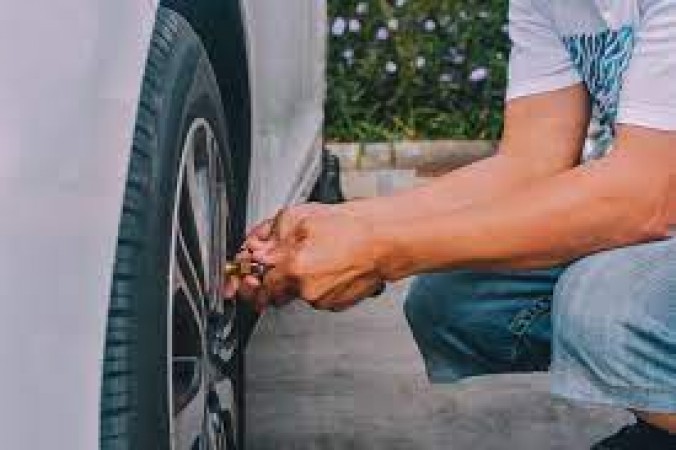
When it comes to keeping your car in the best possible condition, regular maintenance is absolutely essential. Your car is a significant investment, and taking care of it can prolong its lifespan, improve safety, and save you money in the long run.
One of the most critical aspects of car maintenance is changing the oil regularly. Engine oil lubricates the moving parts of your engine, reducing friction and heat. Over time, the oil can become contaminated with dirt and particles, losing its effectiveness. Regular oil changes, typically every 3,000 to 5,000 miles, are crucial to ensure your engine runs smoothly and efficiently.
Proper tire pressure is essential for your car's safety and performance. Underinflated tires can lead to decreased fuel efficiency, uneven tire wear, and compromised handling. Overinflated tires, on the other hand, can reduce traction and lead to a rougher ride. Check your tire pressure at least once a month and adjust it to the recommended levels found in your vehicle's manual or on the driver's side door jamb.
Your car's brakes are a vital safety component, and neglecting them can have severe consequences.
Brake fluid is crucial for the proper functioning of your braking system. Over time, the fluid can become contaminated with moisture and other impurities, leading to decreased performance. Regularly inspect your brake fluid levels and make sure they are within the recommended range. If the levels are low, it may indicate a leak or a worn-out brake component that needs attention.
Your brake pads are the components that press against the brake rotors to stop your car. As you use your brakes, the pads wear down, and it's essential to replace them when they get too thin. Ignoring worn-out brake pads can lead to reduced braking performance, longer stopping distances, and potential damage to other brake components. You can find the manufacturer's recommendations for replacement in your owner's manual.
Various fluids are essential for keeping your car running smoothly. Neglecting these fluids can lead to costly repairs.
Engine coolant, or antifreeze, is critical for regulating your engine's temperature. Proper coolant levels prevent overheating and engine damage. Regularly check the coolant reservoir and add coolant if needed. Additionally, be sure to have your cooling system flushed and the coolant replaced at the intervals recommended in your car's maintenance schedule.
Your car's transmission fluid is responsible for lubricating and cooling the transmission, allowing your car to shift gears smoothly. Neglecting transmission fluid can lead to increased wear and potential transmission failure. Check your owner's manual for the recommended interval for changing the transmission fluid, typically every 30,000 to 60,000 miles.
Modern vehicles are equipped with various warning lights on the dashboard, and it's crucial not to ignore them.
The check engine light is one of the most common warning lights, and it should never be ignored. It can indicate a wide range of issues, from minor problems like a loose gas cap to more serious engine and emissions system problems. Ignoring the check engine light can lead to decreased fuel efficiency and potential engine damage. If the light comes on, it's essential to have your car's computer system scanned for error codes to determine the issue.
In addition to the check engine light, there are other warning lights on your dashboard that may illuminate, such as the ABS (Anti-lock Braking System) light, airbag light, or tire pressure monitoring system light. Each of these lights indicates a specific issue, and it's essential to address them promptly to ensure the safety and proper functioning of your vehicle. Refer to your owner's manual for guidance on what to do when these lights come on.
While the mechanical aspects of car maintenance are crucial, keeping your vehicle clean is equally important.
Washing and waxing your car not only keeps it looking great but also helps protect the paint and finish. Regular exposure to the elements, road grime, and contaminants can cause paint damage and rust. Washing your car every few weeks and applying wax a few times a year can preserve your car's exterior and maintain its resale value.
Maintaining a clean interior not only makes your car more pleasant to drive but also contributes to its overall well-being. Regularly vacuum the carpets, wipe down surfaces, and clean the windows. Proper interior cleaning can help prevent odors, stains, and wear and tear, ensuring a more comfortable and inviting driving environment. Taking care of your car doesn't have to be complicated or time-consuming. By following these five easy tips, you can keep your vehicle in top shape, ensuring safety and longevity. Regular maintenance, including oil changes, tire pressure checks, and brake inspections, is essential. Monitoring and maintaining critical fluids like coolant and transmission fluid is equally important. Pay attention to warning lights, and always address them promptly to prevent more significant issues. Lastly, keeping your car clean, both inside and out, not only enhances its appearance but also contributes to its overall health and well-being. Your car is a valuable asset, and a little maintenance can go a long way in ensuring it serves you well for years to come.
Big jump in Maruti's earnings, net profit of Rs 3716 crore
OMG! Honda launched a bike more expensive than Hyundai Creta, gave these features